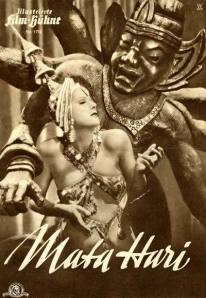 Christina Taylor Greene, born at 12:50 p.m. on September 11, 2001; died at 10:10 a.m. on January 8, 2011.
Christina Taylor Greene, born at 12:50 p.m. on September 11, 2001; died at 10:10 a.m. on January 8, 2011.
Dear Christina,
I wanted to talk to you before you become a face on plastic amulets in our convenience stores, before the struggle over the meaning of your birth, life and death becomes a fight over political territory. I know I am appropriating your birth and death for myself. I do it with good intentions and in the hope that it would make you happy.
You were born in a moment of your nation’s despair, hatred, fear and rage. You knew none of that but you, as all of us, have lived in its grip for your whole life. It sounds as though your family didn’t let it hold you too hard. You were life for them when their country-people focussed on death. You were beauty and innocence and, little doubt, hope. Someone even put your face in a book called Faces of Hope, so you became a symbol for a larger circle of people than those who knew you and nurtured you.
That circle has failed you, Christina. Perhaps against our own wills we allowed your birth and the nourishment of your young life to be overtaken by our own selfish wishes for revenge, our desire to take back our own innocence by force, by our anger and rage and childishness. We moved from the terrible day of your birth too quickly, forgetting to mourn, forgetting what mourning means. We stayed in our rage and bitterness too long and polluted your environment so that it could no longer sustain you. We are famous for making this kind of mistake.
In the time since you were born we have killed many children like you. We thought we were doing that to protect you, so that you could grow up whole and strong and give us those gifts I see in your eyes. We forgot how easily and quickly we could destroy those gifts if we didn’t prepare ourselves to accept them.
We grew scabs over the pain caused us on the day of your birth. But they were scabs made of fear and a need for retribution and they allowed poisons to fester beneath them. We allowed our wounds to become fuel for violence. We have spent years spitting at each other. For all that I am against war and for peace, people have felt my spit on their faces too, I have been in such a rage about the killing. I know I am part of what killed you.
Yesterday, you went to hear and see Congresswoman Gabrielle Giffords because you were interested in the workings of government and your curiosity caused a neighbour to invite you to meet her. Your interest, your neighbour’s interest in you, these are such good things. But we didn’t give you a good or safe place to explore your interests and curiosities. We gave you adults shouting inanities back and forth. We gave you insulting and hurtful and painful chatter. We made fun of people who called the rhetoric hurtful and insulting. We gave you words as weapons and vehicles to carry the poison of those festering injuries we sustained back on the day you were born. And long before that.
I’m not a romantic or an idealist, Christina. It’s become very difficult to say the words “all you need is love” and be taken seriously. Perhaps because we have never really understood what we meant when we said those words. Maybe we thought those words just meant “don’t worry, be happy”. Though even that is hardly a bad thing.
We seem to have forgotten that wise women and men (and children) have pondered the meaning of those words for centuries and only understood them fleetingly and through a dark glass. We don’t think those words are “useful” in “real” life which is harsh and hard and technical and practical and scientific and rational and emotionless. Many people sneer at those words, Christina, and think they are nice enough in a song but of no useful significance. Others think they can use them in their churches and synagogues and mosques and decide what they mean in those limited places and forget what it means to bring them out into the world – the real world that often doesn’t look as though it was made for love but was.
I’ve had a bad year myself, Christina. I watched a livestream of some very vengeful men hurting some peace-loving, gift-bearing people on a ship bound for a place called Gaza and it affected me profoundly even though I wasn’t quite sure how. I watched a bunch of vengeful men, and probably some women, intimidate, corral, beat and imprison some friends of mine in Toronto and it affected me profoundly even though I wasn’t quite sure how. It has seemed in the past year that everything I’ve always worked for and towards was in tatters and that the world was going from bad to worse. I wondered if there was anything I could really hope for, or in, any more. I’ve been pretty angry and have often felt embittered. I use that word, “embittered”, because I felt someone made me bitter, I didn’t take responsibility for choosing bitterness. That was dumb of me. I take that back. I am not bitter, I was just being stupid for awhile. You have caused me to wake up a bit.
I want this bad death that has been inflicted upon you by all of us to lead to something better, if not something good. Like a world where kids can admire and respect and actually learn some wisdom from their elders because their elders have taken the trouble to be respectable and wise. A world where it’s actually sensible to participate in the ways we govern and nurture ourselves and look after others because we do our best at it and respect ourselves and others who try. Hey Christina – a world in which we’ve taken the trouble to know ourselves and understand what a good life might be and care enough to work for it. If we got that for ourselves, if we thought enough of ourselves to demand it, we wouldn’t be able to help being good to each other, because that’s what being good to each other requires.
We need to grieve you now, child. I admit, I’m trying to get on the grief bandwagon here quickly and take over. I know I’m going to be angered by the way your death gets exploited and people tread either too hard or too lightly on your life and its meaning. I know I’m going to get it wrong too. I just hope I can stay committed to a gentle path of grieving you, one on which I don’t cling too hard and fast to anything in particular and don’t respond too nastily to others who think they know what you meant and what you mean. I do think I know something though. I’ll try to hold onto it and share it, in your honour, without wearing my rage.
You are so beautiful. I’m glad to know you. And so sad you are gone.


